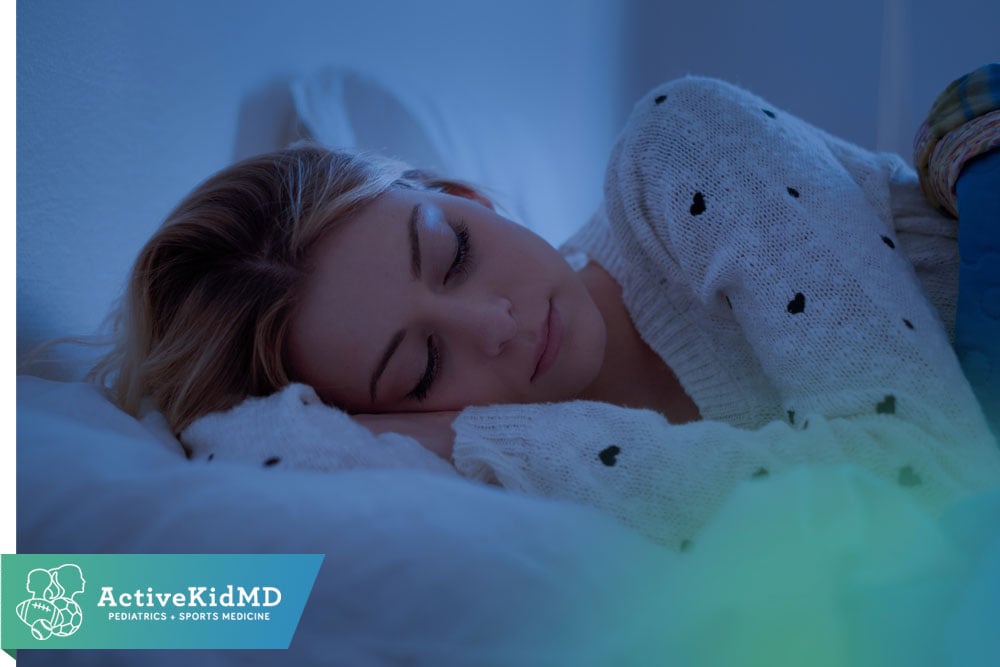I recently heard an amazing Finding Mastery podcast featuring Dr. Matthew Walker, author of the highly acclaimed book “Why We Sleep.”
The Finding Mastery podcast series is hosted by high performance psychologist Dr. Michael Gervais. I first met Dr. Gervais through our collaboration with USA Volleyball and was impressed with his desire to discover and share best practices for performance. His work with many high-level organizations brings a unique wealth of knowledge and experience to every conversation.
If you haven’t checked out the Finding Mastery series to inspire you to be your best, START NOW!
The timing of this podcast was spot on. I had just finished writing multiple blogs and posts on the importance of sleep. So, focusing on specific ways to help people get high quality and sufficient sleep was big in my world.
Click here to read those blogs and posts about the role of sleep:
- Concussion Sleep Problems: Sleep Better to Feel Better
- Getting Enough Sleep is Crucial to Volleyball Success
- Ask the Experts: Sleep Better, Dance Better
- Struggling to Sleep may lead to Struggles with Injuries and Performance
I was impressed with the entire Finding Mastery podcast and listened to it while I was in the car and at the gym. Now, when Dr. Walker listed specific recommendations and myths about sleep, I wanted a pen to take notes. That didn’t happen with the first (or second) run, so I actually did a third listen with my laptop ready to go.
With all credit to Dr. Walker and Dr. Gervais, here’s practical tips to improve the amount and quality of your sleep:
-
- Be regular. Go to bed at the same time and awaken at the same time no matter weekday or weekend.
- Embrace darkness – not just at bedtime but in the hours before sleep. Darkness helps the brain release melatonin which is a hormone that helps time the start of sleep. Not having this signal can delay onset of sleep. Shut down screens at least an hour before sleep. Also dim down lights and use shades to darken rooms in the hours before bedtime.
- Keep it cool. A room temperature of 65-67 degrees can help with starting and staying asleep. Better to have a room too cool than too hot.
- Respect how long caffeine can affect sleep – especially in the afternoon or evening. Caffeine has a half-life of 6 hours and quarter-life of 12 hours. This means a latte or iced tea at 12 noon has a quarter of that caffeine lurking at midnight. Caffeine can also limit the amount of deeper, more productive sleep.
- Be cautious with alcohol – it does knock out your brain, but it doesn’t allow deep consistent sleep. It also reduces dreaming later in the sleep cycle. Take these results into mind when considering alcohol use in the hours before bedtime. Don’t depend on alcohol to help fall or stay asleep.
- Walk it out. Don’t stay too long in bed if you can’t fall asleep. Your brain will learn to link your bed and being awake. The bedroom can then become a trigger for staying alert. If you are awake for 20 minutes, get out of bed and go into another room. Don’t open your phone. Try some light reading (best non-screen type), don’t eat, and only return to bed when sleepy. This can create a better link between bedroom and more quickly falling asleep.
- If there is anxiety about falling asleep, writing in a journal one hour before bedtime can be helpful. Jotting down all thoughts, especially worries, can produce quicker falling asleep.
- Belly breathing – make it big and fat – this can activate the calming part of the nervous system to start sleep. That calming process may need a minimum of 12-14 deep belly breaths to get started and feel a difference. Be patient!
- How do you know if you’re getting enough sleep? Use an alarm (or not). First of all, using an alarm can help with regularity (see tip #1 above). Now, if you are using an alarm and it doesn’t go off, would you sleep past that time? If yes, then you aren’t getting enough sleep. If you also sleep in on weekends, there’s another sign that you are trying to catch up on sleep.
Sleep can definitely affect academic, athletic and artistic performance. Not getting enough sleep can cause problems with your overall health. This can include heart issues, abnormal blood sugars, reproductive health, irregular menstrual cycles and a weakened immune system. If you want the sobering particulars from the work of Dr. Walker, I urge you to check out the podcast or “Why We Sleep.”
Speaking of overall health, I want to highlight some medical issues that could affect sleep. If you think any of these are affecting your sleep, contact us to get professional medical assistance.
- Nighttime snoring, gasping, or pausing of breathing
- Regular falling asleep in class, at work, or during sports/performance periods
- Trouble sleeping after an injury
- Issues with sleep after a concussion
- Mental health issues including anxiety and depression that affect sleep



